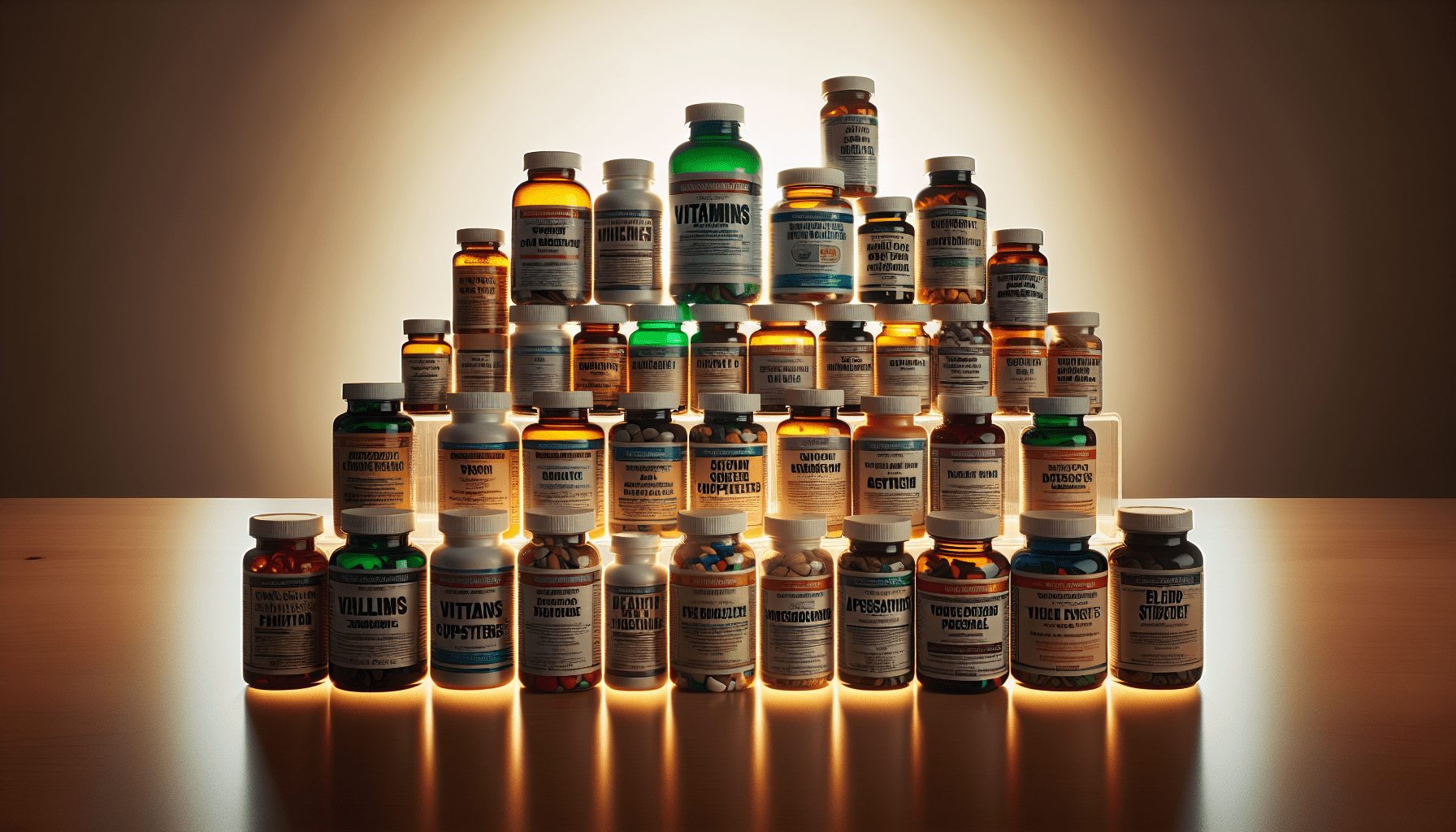Have you ever pondered about what essentials you should gather for an emergency situation? Preparing for emergencies is a topic that can stir up a myriad of questions and concerns. Knowing what to include in your emergency supply is crucial to ensure you and your loved ones are well-prepared and safe. One question that often comes up is whether vitamins or supplements should be a part of this essential kit.
In moments of crisis, maintaining good health is paramount, but you might be wondering how significant of a role vitamins and supplements play in that equation. Let’s explore this topic further to see if incorporating these into your emergency preparedness strategy is right for you.

Understanding the Importance of Nutrition in Emergencies
The importance of nutrition cannot be overstated, especially in times of disaster or emergency. When faced with the unexpected, such as natural disasters or prolonged power outages, your normal access to fresh, healthy foods might be disrupted. Therefore, sustaining your health with the right nutrients becomes even more critical.
Why Nutrition Matters
In emergencies, your body may be under additional stress due to the conditions or the emotional strain of the situation. Nutrition supports your immune system, helps heal injuries more efficiently, and provides the energy necessary to deal with stressors. Without adequate nutrition, you may experience a decline in physical health, which can further exacerbate an already challenging situation.
Common Nutritional Deficiencies
Understanding common nutritional deficiencies can help guide your decisions on whether supplements are necessary. In typical diets, deficiencies can include critical vitamins and minerals like vitamin D, vitamin C, magnesium, and iron. During an emergency, these deficiencies could worsen due to limited food options and reliance on canned or non-perishable goods.
The Role of Vitamins and Supplements
Before determining if vitamins and supplements should be in your supply kit, it’s crucial to understand their role. Vitamins and supplements are meant to complement your diet by filling in the nutritional gaps that you may not be able to satisfy with food alone, especially under circumstances where access to fresh food is limited.
Potential Benefits
-
Maintain Immune Function: Vitamins such as vitamin C and D help to support immune function. In stressful situations, your body may require more support to fend off potential illnesses.
-
Boost Energy Levels: B vitamins are known for their role in energy production. They can be particularly useful if your emergency diet lacks fresh fruits, vegetables, and proteins.
-
Aid in Healing: Nutrients like zinc can aid in wound healing, a vital function if medical attention is not immediately available.
Limitations and Considerations
However, vitamins and supplements come with several considerations. They’re not a replacement for a balanced diet, and taking them without proper guidance may not bring the intended benefit. Additionally, not all supplements are created equal—some may not have the potency they claim, and ineffective supplements could lead to a false sense of security.
Assessing Your Emergency Supply Needs
Deciding whether to include vitamins and supplements in your emergency supply involves assessing your specific needs, lifestyle, and potential scenarios you might face.
Personal Health Considerations
Consider any chronic health conditions or existing nutritional deficiencies you may have. If you require specific nutrients that may not be readily available in emergency food supplies, supplements can be a valuable contingency.
Types of Emergencies
The types of emergencies you’re preparing for can influence the necessity of supplements. For short-term situations, their inclusion might not be as crucial, whereas in longer-term scenarios, they could prove beneficial as your food supplies dwindle.
Selecting the Right Supplements
Should you decide that vitamins and supplements are a worthy addition to your emergency supply, it’s essential to choose the right ones. Quality matters significantly; opt for reputable brands verified by third-party testing.
Essential Vitamins and Minerals
Consider supplements that cover a broad spectrum of nutrition. For example:
| Vitamin/Mineral | Function | Source |
|---|---|---|
| Vitamin D | Supports bone health and immune function | Sunlight, fatty fish |
| Vitamin C | Antioxidant, immune support | Citrus fruits, tomatoes |
| Vitamin B12 | Energy metabolism, red blood cell production | Meat, eggs, dairy |
| Magnesium | Supports muscle and nerve function | Nuts, whole grains |
| Zinc | Immune support, wound healing | Meat, dairy, legumes |
Understanding Dosage
Be mindful of the dosage amounts; more isn’t always better. Consult with a healthcare provider to determine the proper dosage specific to your needs and ensure it’s safe in combination with any medications or health conditions.

Storing Vitamins and Supplements
Proper storage is key to maintaining the efficacy of vitamins and supplements. Ensure they are stored in a cool, dry place, away from light, heat, and moisture to preserve their integrity.
Shelf Life Considerations
Many supplements have a long shelf life, which is beneficial for emergency supplies. Regularly check expiration dates and rotate stock as needed to ensure your supply stays effective.
Conclusion: Making an Informed Decision
Ultimately, deciding whether to include vitamins and supplements in your emergency supply depends on personal preferences, specific dietary needs, and the potential scenarios you might face. By considering factors like your health, type of emergencies, and nutritional gaps, you can make a more informed decision.
In times of emergency, preparing effectively can alleviate some stress and ensure your safety and well-being. Therefore, weigh the pros and cons, consult with a healthcare provider, and prepare your emergency kit to best suit your needs for the unexpected. Embracing a proactive approach will help keep you ready and resilient when emergencies arise.

